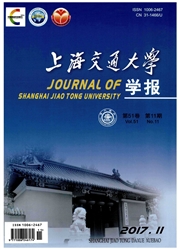

 中文摘要:
中文摘要:
提出了一种基于节点剩余能量的MAC(REA—MAC)协议用于无线传感器网络.该协议改进了SMAC的竞争退避机制,考虑了节点的剩余能量来动态选择竞争退避时间,让剩余能量大的节点获得接入信道的优先权,从而使全网负载均衡,延长网络生存期.同时,它采用了自适应占空比调整的方法来适应网络流量的变化,减小了同步帧的开销.仿真结果表明,REA—MAC比SMAC减小了79%的冲突次数,延长了17%的网络生存期并且正确接收到的数据包增加了51%.
 英文摘要:
英文摘要:
A residual-energy aware MAC protocol (REA-MAC) for wireless sensor networks was proposed. REA-MAC modifies the contention mechanism of SMAC, takes the node's residual energy into consideration to adaptively select the deferring time and let the nodes who have more residual energy to access the channel with priority, thus the network load is balanced and the network lifetime is prolonged. A traffic adaptive duty cycle scheme is also adopted and the overhead of synchronous frame is reduced. The simulation results show that, compared to SMAC,REA MAC can decrease the total number of collisions by 79%, achieve an increase of 17% in the network lifetime and an increase of 51% in the total number of packets that are correctly received.
 同期刊论文项目
同期刊论文项目
 同项目期刊论文
同项目期刊论文
 期刊信息
期刊信息
